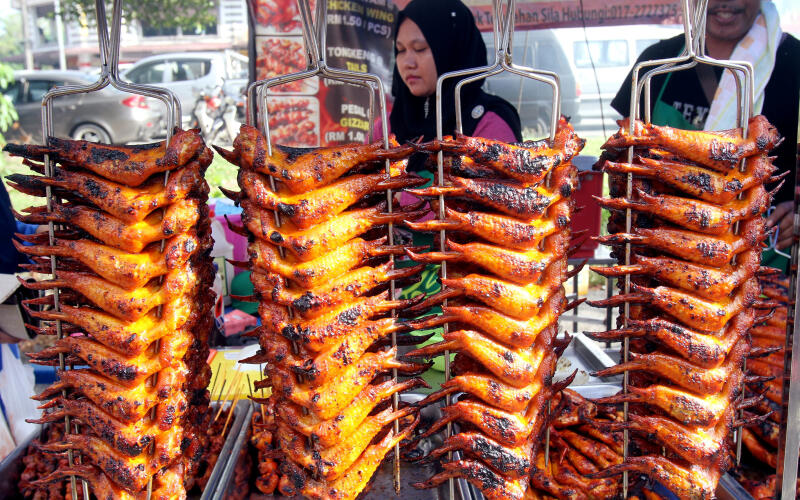Coronavirus: Malaysia comes up with new ways to help Ramadan bazaar trade amid outbreak
Sign up now: Get insights on the biggest stories in Malaysia

A stall at a Ramadan bazaar in Taman Sri Serdang, Malaysia.
PHOTO: THE STAR/ASIA NEWS NETWORK
KUALA LUMPUR (THE STAR/ASIA NEWS NETWORK) - Malaysia's three federal territories (FT) of Kuala Lumpur, Putrajaya and Labuan won't hold the hugely-popular Ramadan food bazaars this year due to the coronavirus outbreak, with the authorities cobbling together three different ways to help Muslims buy their food and drinks from street traders during the upcoming fasting month.
The three FT districts thus joined eight of the 13 Malaysian states which have also banned the bazaars in a bid to ensure people practice social distancing.
Only Johor, Perak, Perlis, Pahang and Kelantan have yet to formally ban the annual bazaars.
These fairs consist of makeshift stalls selling food and drinks that are set up across the country along roads and in open carparks, and thronged by Muslims looking for food and drinks to break their day-long fast.
Muslims begin fasting on April 24 - 10 days after Malaysia is scheduled to lift its month-long Movement Control Order.
Both the fasting month and bazaars are important annual events in Malaysia, with Muslims making up some 60 per cent of its 32 million population.
Federal Territories Minister Annuar Musa on Wednesday (April 8) said the regular Ramadan bazaars in the three territories have been cancelled, and offered three alternatives for traders.
"The three concepts to sell food and drinks are: drive-through, pack and pick, and e-hailing service," he said.
State authorities and traders in Malaysian states such as Selangor, Negeri Sembilan and Terengganu have also banded together to sell their food and drinks online during the fasting month, with some planning to bypass the major food-delivery platforms in order to save on paying hefty commissions.
Tan Sri Annuar said that with the drive-through concept, the food will be pre-packed. There will be a 20m gap between the canopies of each makeshift stall, and the food and drinks traders will be arranged according to segments.
"The drive-through system will be located in areas where the roads are wide and traffic circulation doesn't create an obstruction," he said, referring to the huge carpark of Bukit Jalil National Stadium in Kuala Lumpur and the wide avenue of Boulevard Presint 2 in the administrative capital of Putrajaya.
For the "pack and pick" concept, he said that customers would pre-order online through platforms provided by the local authorities, with payment done online or using the e-wallet.
"The collection of food will be done at places determined by the local authorities while ensuring social distancing measures are in place.
For the third method that he calls e-hailing, he said local authorities will register the traders with companies such as Grab Food and Foodpanda.
"Customers just need to place their orders using the app and food will be delivered to their homes."
The local authorities under the Federal Territories Ministry's purview are Kuala Lumpur City Hall, Putrajaya Corporation and Labuan Corporation.
Mr Annuar, who spoke via a livestreaming session on Facebook, said all three plans have been approved by the Cabinet and will adhere to the health ministry's guidelines.
"The details of the three concepts will be fine-tuned by the local authorities, " he said, adding that an incentive would also be drawn up to encourage traders to adopt the new move.
Registration for the new concepts will begin on April 13 and end on April 19.
Malaysia's Covid-19 cases have breached the 4,000 mark, with another 156 positive cases on Wednesday to bring the tally to 4,119. There were two new fatalities to bring the death toll to 65.


